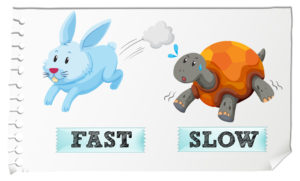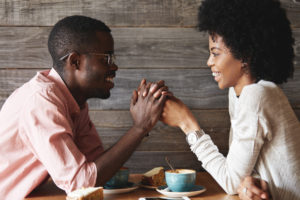Online dating is a project that is not without awkwardness and heartbreak. Put simply, there are instances where the “match” does not work out for one or both parties and genuine feelings are involved. Hurt feelings and confusion about what to say are inevitable, but there are some guidelines that may help both parties feel respected and heard during the process of ending a relationship.
Guidelines:
Don’t Drag it Out
If you are the one ending the relationship, even if it’s a relationship of short duration, it may feel easier to let things go on beyond when you really know that its not for you. It may feel, in the moment, like you are sparing the feelings of your partner…but actually you are more likely just avoiding your own feelings. It’s not comfortable to feel responsible for causing another person pain, so sometimes it’s easier to postpone that feeling within yourself. So…. have some courage and do the right thing. Its better for you both in the long run
End The Relationship In Person, not via Cyberspace
The widespread use of texting and other messaging methods for “ghosting” people or outright breaking up with them is the ultimate in disrespect in my view. Please…have the courtesy to talk to the other person in person…in the flesh. Relationship termination conversations may feel awkward, but they can be done in such a way as to preserve the integrity of both of you.
Take Time With Yourself After The Breakup To Figure Out What Went Wrong
Healthy relationships are at the very core of a long and happy life. This truth has now been borne out by “happiness” research. It’s also true that we, as human beings, tend to repeat patterns in terms of whom we choose to be in relationship with, and how long our relationships last. Sometimes the patterns are dysfunctional and keep causing us heartbreak. It’s worthwhile to take a look at what your “patterns” are and try to change them.
Forgive Yourself, Learn From Your Mistakes, Change Your Perspective
It’s not the mistakes we make in life that are the problem. It’s our refusal, sometimes, to learn from them. In the case of a relationship ending, the first step toward healthy growth is to get rid of the word “failure”. Think instead of life being a series of relationships that come and go…much like actors on a stage that have “parts” of varying duration. A play moves along with a narrative wherein each “actor” moves the story along, and all the “parts” are important.
When you adopt the perspective that your “relationship” life consists of a unique series of people who will come and go…sometimes with the sadness of loss…sometimes not…then you can fully embrace “the one” who finally “stays” for a while. You can say to yourself “Wow…. here you are at exactly the right time. Welcome to my life!”










